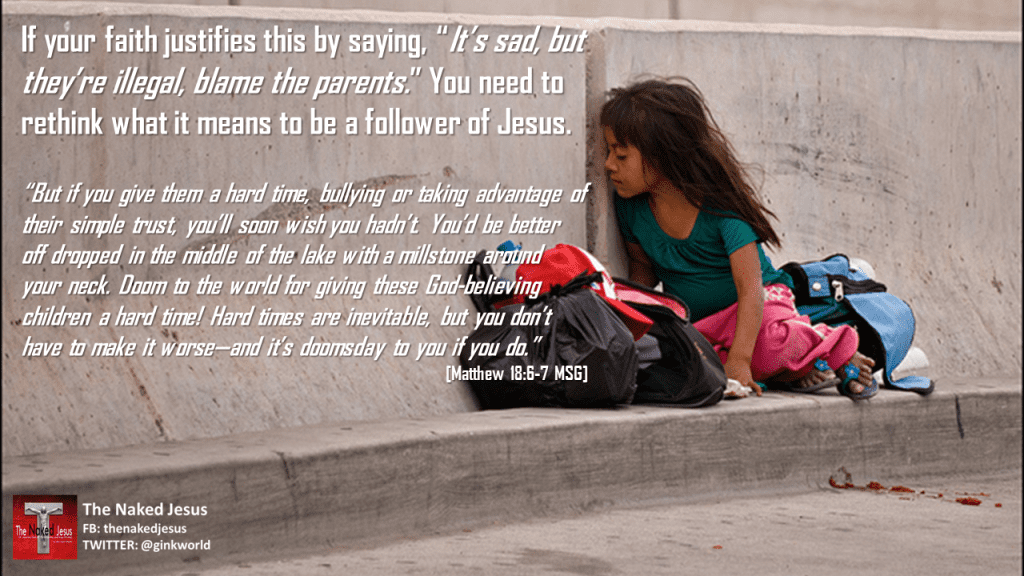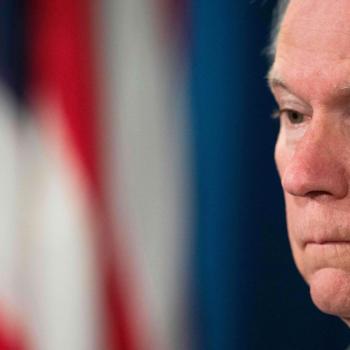
Are you looking for that new program you can implement in your church that will attract Millennials? After all, Millennials are weird, an enigma dancing in a mist of wonder wrapped in the cloche of invisibility; but you see them as your hope, your future, and you so want to attract them, right? You know you do. Think of it this was:
How much have you spent on books looking to do just that?
How many articles have you read to understand how they think?
How often have you thought about changing the music?
How many conversations have you had about attracting young families?
How many Board meetings have centered on tweaking programs to get those young people in?
You might’ve even thought about buying skinny jeans, a plaid shirt and a cool pair of new glasses; then you realize you’d look like a lollipop in skinny jeans and the really cool glasses don’t hold a tri-focal lens.
Well, I’ve great news for you. If you’ve been looking for that one new, amazing, magical, vision centered program that will attract Millennials by the hundreds, here it is:
Sorry, there isn’t one.
SNAP, who just burned who?
Think of it this way, Millennials aren’t looking for an attractive model of church: that, come and see how cool we are model died decades ago. If you think you can attract the next generation with a slick ad campaign, or catchy slogan, or smooth vision statement you’re wrong. The next generation is immune to the marking games that brought older generations running into the church. In fact, being slick to the next generation is like trying to run a Windows program on an iMac.
So, what can you do?
Before I share, let me ask you some very important questions:
Do you want to change?
I mean, do you truly want to change?
Are you willing to change?
I mean, are you willing to truly change everything you think about church?
Is change part of your DNA?
Are you more action than talking?
Because for many churches what I’m going to suggest will be hard, very hard – if not impossible. You need to realize this is a sum-total change. You’re either in it, or you’re not. This isn’t change based on small increments over the next five to ten years. I’m talking straight up, down and dirty change. If you try to piecemeal this, and simply try to force your old ways into new wineskins it’ll blow-up in your face. Also, keep in mind, Millennials aren’t a uniformed monolithic culture. Some will think differently, but in my experience most, if not all, would agree with me.
Now, let’s see if I can shine a little light on what needs to change.
1.) You need to build an honest, open desire to change:
If there’s one thing that’ll turn off a Millennial, it’s your inability to change: change is part of their DNA. This generation doesn’t get your desire to hold to the past, it makes no sense to them. They’re not tied to tradition, they’re not tied to programs, activities or events just because they’ve been done in the past. Millennials are going to come-up with new, crazy, creative ideas on their own, and you need to welcome that, and not shut it down. Now, you can make all kinds of excuses as to why traditions are important, but to a Millennial your arguments are mute.
Too many churches hold traditions so close, they miss the opportunity to do something new, something amazing. If you’re not changing, you’re dying. This generation has a strong desire to change the world and if they see you’re not willing to change, you lost them.
2.) You need to dream big:
It doesn’t matter how big your church is, or how small, if you don’t have big dreams you lost. I’m always dismayed when a church has no dream, not vision, no connection to the future. If all your church can do is look back at the good old days you’ll miss out on what the Divine is doing now, and in the future. What you’ll need to remember is this, for a big dream to happen you’ll need to truly rethink how you govern in your church. If Millennials see the process as daunting, they’ll just walk. Big dreams require quick moves, the ability to turn on a dime, to decide to change directions at a second’s notice. Long decision making will kill big dreams.
Millennials are looking for that dream and the ability to implement that dream. If you don’t have it they’ll stay away as if you had the smallpox.
Without a dream, a vision, a future, you have noting for an Millennial to invest in. Don’t limit your dreams. Your dream needs to be so big, so crazy, so divinely driven it might seem impossible. You see, Millennials are not limited by rules, age, money, or anything humans want to place on limiting the dream.
3.) Don’t be afraid to fail:
Keep this as a mantra in your thinking: failing is not being a failure. Millennials aren’t afraid to fail. They can find the win in failure. No matter what, take the chance, reach out for the impossible, and if you fail – have a great party to celebrate the try, and learn from it. Millennials get the idea that big dreams sometimes have setbacks, and those setbacks don’t kill the dream. If you fear failure, Millennials will smell that fear and leave.
4.) They demand a voice:
If you think Millennials will allow age from keeping them from leading, you’re so wrong. If your church will not invite this generation to lead, they will leave and find a place, any place, where they will feel their abilities will be wanted.
You need to understand; this generation isn’t looking for you to empower them because they know you don’t have the power. You may have the authority, but they don’t care about your authority. The power comes from the Divine, not you and authority is seen as a misuse of power. Statements like, “I’m the leaders” is like pointing to the door and telling them to leave.
This generation is looking for a task, not a title; titles mean nothing. They’re looking for the freedom to do, to take on a project, to move ahead and fail or succeed. In that, never micro-manage, if you do, they’ll feel like a child and they’ll run the first change they get. If you think they cannot do the task because of their age, or experience, you’ll never get them to do anything.
5.) Focus on the right questions:
Millennials care about changing the world; feeding the hungry, helping the poor, being involved in their community, lifting the marginalized. Millennials have no desire to be caught in the questions people are not asking. If your church is still talking about music style, committee meetings, board structure, or the next congregational meeting, you are asking the wrong questions.
Millennials aren’t big supports of the church, or any group, based on its institutional status. So, if you’re asking the wrong questions, or are driven by boards, committees and meetings, you’ll lose this generation faster than you’d imagine.
6.) You must be 100% transparent and authentic:
Millennials value transparency and authenticity because they seldom see it in the church. Pastors and church leaders aren’t absent from temptation or failure. To deny that reality will turn off this generation. They’ve heard all the stories of pastors and leaders who’ve fallen from grace, and to hide this reality is something this generation will not stand for. Millennials are looking for real, honest, open people willing to share their scars and be who they are.
Keep in mind, this also includes being 100% transparent in how the money is spent. I know of too many churches that have special accounts where that balance is not shared with everyone.
7.) Redefine mentoring:
Millennials like mentoring, but not the way you may think. This generation wants to learn from older generations, they will even seek out people who can give them that support and help to succeed. What they’re not looking for is to be assigned a mentor. They want the freedom to ask different people the same questions and come to a conclusion on their own. They’re no looking to be told what to do, they’re looking for ideas; they seek wisdom, they seek out the sage, they’re not looking for a mom or dad to tell them what to do.
8.) Embrace the culture:
If your church separates itself from the culture, you’ll never appeal to this generation. If you’re saying, “Our church is a safe place” what this generation hears is, “We separate ourselves from the culture.” They see it as the church is pulling away from the needs of the city and living behind the fortress walls. You see, this generation is looking to engage the culture and find ways to help. Where the church is pessimistic towards the culture, this generation is optimistic. If your church has no idea what’s happening in the culture, you’re not only miss the opportunity to help people in need, you are not even seen by Millennials. Millennials are increasingly optimistic about the surrounding culture because this is the model of Jesus.
9.) Think community, and then think community again:
Community is a non-negotiable part of this generation. They value a community that’ll move them beyond the surface issues of life and asks the hard questions we all struggle with. They aren’t looking for new drinking buddies, they’re looking to be challenged in community. That’s not to say Social Community isn’t important to Millennials, because it is.
Sermons should address the hard questions of life, and they should be accompanied by something this generation can take home, talk with their friends, talk with their loved ones about. This can be a piece of paper with some questions on it, or a link, a message, a text, whatever – it just needs to be something they can gather with others and talk about.
Millennials are grounded and focused by community. They know that community will challenge them to reach heights they could never reach alone. Millennials want to go deeper, and they want their lives to have meaning, they believe that this can only happen in a deep, authentic, Christ-centered community.
10.) Think unity:
Millennials value racial, generational, gender, sexuality and socio-economic unity. For this generation, they see the Narrative reflected in the life of Jesus when all groups can be brought together, and most Millennials are crazy enough to believe the Divine can accomplish this. Keep in mind, this is the most racially, sexually, ethnically generation ever. They see traditional boundaries as limiting them from who they are.
Closing thoughts:
If you see these as impossible, or you’re just not the person to carry out the changes needed, all is good. There is comfort in being safe. Granted, Jesus never calls us to be safe. But that’s something you’ll have to work out on your own. But, if you just can’t make the change but feel the need to go beyond safety, I’ve a solution: fund church plants. You see, it is easier for a church plant to have the DNA for change. So, if your church just can’t change, send money to your denomination to fund new churches; send money to local church plants looking to reach this generation. Don’t say you can’t change to reach this generation and ignore those church plants that can.












